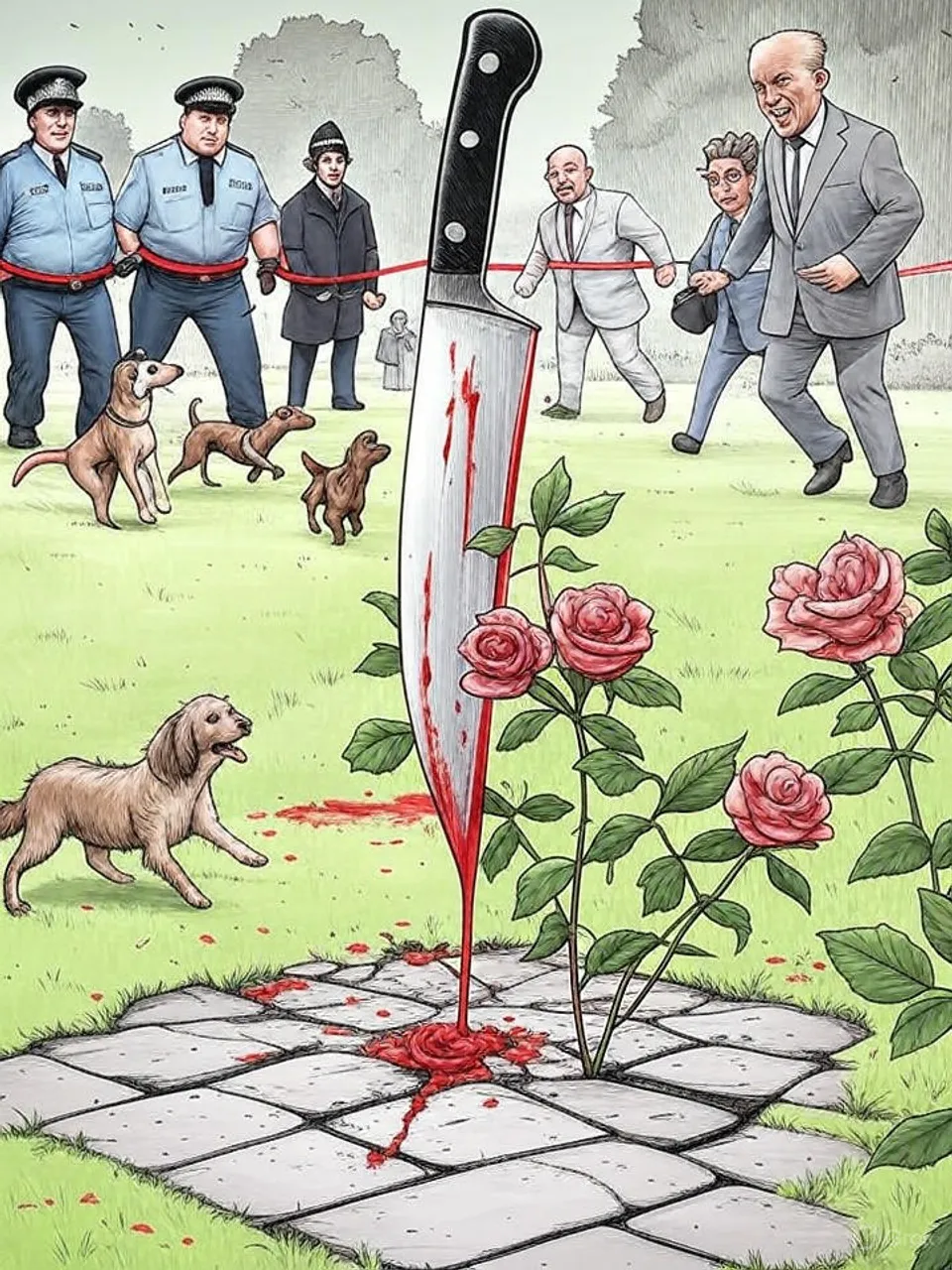A Knife in Midhurst Gardens

Asylum Grant to Fatal Stabbing in Two Years
A routine dog walk in Uxbridge ends in death, exposing failures in asylum integration and rising knife crime that successive UK governments failed to curb.
Wayne Broadhurst walked his dog along a quiet Uxbridge street on a Monday evening. Paramedics could not save the 49-year-old bin man after three stab wounds pierced his body. The attack left a 45-year-old man with injuries that will alter his life and a 14-year-old boy with wounds that, while not fatal, mark another child touched by London’s blade culture.
Police arrested a 22-year-old Afghan national at the scene. He entered the UK hidden in a lorry in November 2020 and received asylum and leave to remain in 2022. The Home Office states he does not reside in their accommodation, yet details on his post-asylum life remain absent from public records.
This incident fits a pattern in Hillingdon borough. Knife offences in London rose 20% in the year to mid-2024, per Metropolitan Police data, with west London suburbs like Uxbridge recording 15 fatal or serious stabbings since 2020. Residents now describe their streets as “gone downhill,” a shift from the family-oriented calm recalled by long-time locals.
Asylum grants surged under successive governments. The UK approved 76% of Afghan claims post-2021 Taliban takeover, totaling over 20,000 by 2023, according to Home Office figures. Policies aimed at rapid integration faltered; a 2023 National Audit Office report found inadequate monitoring of asylum seekers’ community ties or mental health support.
The suspect’s path from lorry crossing to Taser takedown exposes gaps in border control and follow-through. Illegal Channel crossings hit 45,000 in 2022 alone, yet enforcement focused on deterrence rhetoric over capacity building. Police resources strained nationwide, with the Met facing 10% staff cuts since 2010, leave officers to reassure rather than prevent.
Community response unfolded in flowers and a minute’s silence. One neighbor, who laid shortbread for Broadhurst’s widow, questioned if a slight delay in his routine might have spared him. Fear now grips parents; a local mother reported her daughter sleepless, haunted by the proximity of random violence.
This stabbing reveals how policy abstractions collide with daily lives. Governments from Blair to Starmer promised secure borders and safe streets, yet knife possession convictions climbed 40% in a decade, per Ministry of Justice stats. Ordinary workers like Broadhurst bear the human cost of unaddressed integration failures.
Institutional accountability dissolves in such cases. No minister resigned over the 2022 asylum backlog that processed this man’s claim amid 175,000 pending applications. Instead, inquiries drag, and the cycle renews: violence erupts, police cordon, politicians express sympathy without structural reform.
Broader social fabric frays under these pressures. Trust in policing dipped to 60% in west London polls last year, per Ipsos, as residents witness attacks on the vulnerable—dog walkers, bin men, schoolboys. Civic routines, once mundane securities, now carry lethal risk.
The Uxbridge scene underscores Britain’s deepening malaise. Decades of immigration policy toggled between openness and clampdown yielded neither safety nor cohesion. Citizens navigate streets where asylum decisions, made in Whitehall, end in blood on suburban pavements—a stark metric of institutional drift.
Commentary based on Uxbridge triple stabbing: Dog walker killed and two injured at BBC News.